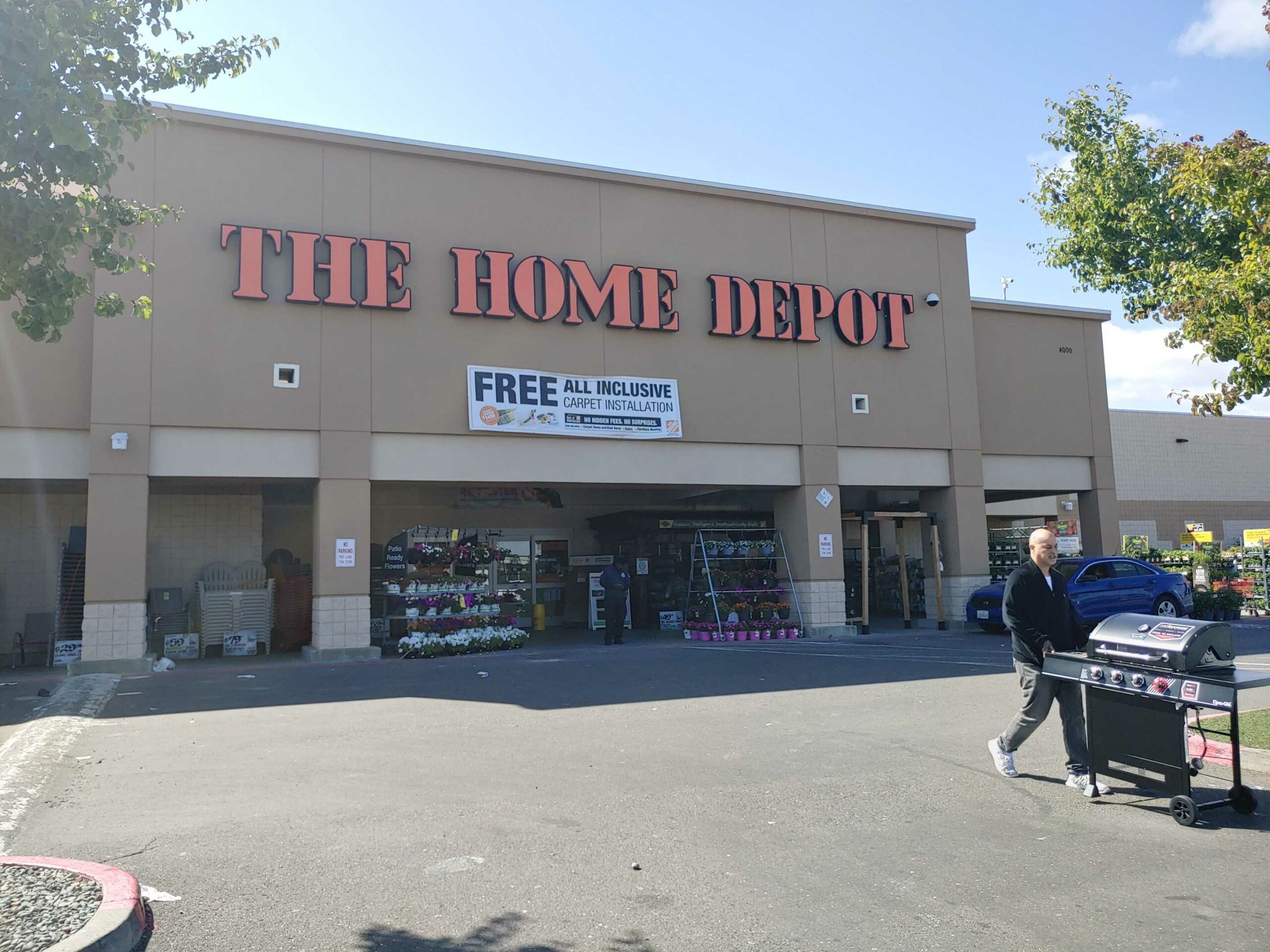Home Depot stores in the Bay Area have started to lock items behind cages due to rampant theft.
Workers told The Standard that the stores locked high-value items such as power tools behind the cages starting around January, but since then, even laundry detergent has been locked up.
"It used to be big-ticket items, but now even the detergent is locked up," said one worker at the Emeryville Home Depot store, who spoke anonymously because they were not authorized to speak to the press.
Items behind lock, key and cage vary, from expensive power tools, spools of copper wire and lawn mowers to more mundane items like phone chargers, work gloves and shower drain covers.
The workers said the cages are an effective deterrent for most thieves, but more savvy criminals can work around the cages, especially to access more lucrative scores, like items in the power tools section.
"A month ago, I saw these two guys just muscle off one of the cages, bare hands," the worker said.
‘Very Inconvenient’
But cages can also irritate customers trying to get basic items that are now locked up.
“I can't unlock hardware because I don't have the code, and they can't unlock plumbing because only I have the code,” one worker said. “It's very inconvenient."
Another worker said the Home Depot stores in El Cerrito, San Leandro and Oakland stores have cages, but some Bay Area stores do not.
Staff at the Oakland Home Depot on Alameda Avenue said the cages were installed in December due to spiking theft.
“It just became a nuisance,” said a worker, who spoke on the condition of anonymity because they were not authorized to speak to the press.
Scott Glenn, vice president for asset protection at Home Depot, told ABC News in a June 1 article that organized retail theft gangs were the reason the company chose to install cages on high-value items nationwide.
Glenn said Home Depot investigated more than one case of organized retail theft per day nationally in the past year as the company recorded around 400 cases of suspected organized retail theft. The thefts amount to losses of "billions of dollars a year," according to Glenn.
Home Depot tells its staff not to confront suspected shoplifters but does employ trained asset-protection guards to challenge thieves. In April, a Home Depot employee was fatally shot in a Pleasanton store after confronting shoplifters.
A Home Depot spokesperson said locking items away is a common retail theft deterrent and the company is always looking for new ways to balance theft prevention without inconveniencing customers.
"As [organized retail crime] continues to be on the rise, we’ve incrementally increased the amount of products that are locked up. Power tools and other high value, high-risk products will always have multiple layers of security involved as they are some of the most desirable to bad actors," the spokesperson said. "Most shoppers have expressed that they do not mind waiting on an associate to unlock the boxes because it means the product is consistently available in store."
Homeland Security officials say dangerous groups like the Aryan Brotherhood, drug cartels and gangs from South America and Eastern Europe are sometimes to blame for organized retail thefts.
A Homeland Security Investigations report published in June 2022 said the average U.S. family will have to pay more than $500 a year extra for goods due to the impact of organized retail theft.
